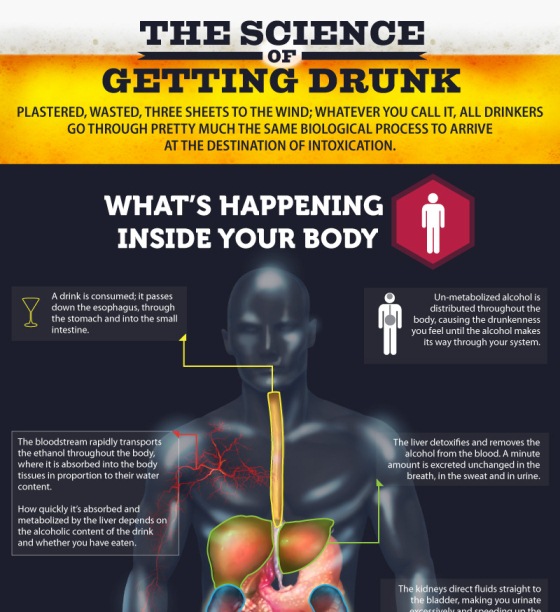Unlock the secrets behind alcohol tolerance and discover the magic number of beers required to feel the buzz. Cheers!

Image courtesy of Anete Lusina via Pexels
Table of Contents
Have you ever found yourself wondering, “How many beers does it take for me to get drunk?” The answer to this question is not as straightforward as it may seem. Getting drunk depends on various factors, including alcohol metabolism, individual tolerance levels, and other influencing factors. Let’s delve deeper into the science behind alcohol consumption and intoxication.
Alcohol Metabolism
Alcohol metabolism is a complex process that occurs in the body after consuming alcoholic beverages. When you drink alcohol, it enters your bloodstream and is eventually metabolized by the liver. The liver contains enzymes that break down alcohol into byproducts that can be eliminated from the body. However, the rate at which alcohol is metabolized can vary depending on several factors.
Factors such as age, gender, weight, and overall health can influence alcohol metabolism. For example, younger individuals tend to metabolize alcohol more quickly than older adults. Additionally, men typically have a higher alcohol tolerance than women due to differences in body composition and enzyme levels. Weight also plays a role, with heavier individuals often being able to process alcohol more efficiently.
Individual Tolerance Levels
individual tolerance levels to alcohol can vary significantly from person to person. Some individuals may be able to handle multiple drinks before feeling intoxicated, while others may feel the effects after just one or two beverages. This difference in tolerance can be influenced by genetics, as some people may have inherited a higher tolerance for alcohol.
Understanding your own tolerance level is crucial for drinking responsibly. It’s essential to know your limits and pace yourself when consuming alcohol. Factors such as food consumption, hydration, and overall health can also impact how your body processes alcohol. By paying attention to these factors, you can better gauge how many beers it takes for you to start feeling drunk.
Factors Influencing Intoxication
Several other factors can influence how quickly you feel intoxicated after consuming alcohol. One significant factor is the rate of alcohol consumption. Drinking multiple drinks in a short amount of time can lead to a rapid increase in blood alcohol concentration, resulting in quicker intoxication.

Image courtesy of www.infographicszone.com via Google Images
Additionally, mixing alcohol with other substances, such as medications or illicit drugs, can amplify the effects of alcohol and lead to dangerous levels of intoxication. It’s essential to be mindful of what you are consuming and how it may interact with alcohol to avoid any adverse effects.
The type of alcohol you consume can also play a role in how intoxicated you feel. Beverages with higher alcohol content, such as spirits or shots, may lead to faster intoxication compared to lower-alcohol options like beer or wine. Knowing your limits and choosing your drinks wisely can help you stay in control while consuming alcohol.
Conclusion
Understanding how many beers it takes for you to get drunk involves considering various factors, from alcohol metabolism to individual tolerance levels and influencing factors. By being aware of your limits, pacing yourself when drinking, and making responsible choices, you can enjoy alcohol safely and avoid the negative consequences of intoxication.
Remember, the key to responsible drinking is knowing when to stop and listening to your body’s signals. Everyone’s tolerance to alcohol is different, so it’s essential to drink in moderation and prioritize your health and well-being above all else. Cheers to enjoying alcohol in a safe and responsible manner!
FAQ
How does alcohol metabolism vary between individuals?
Answer 1: Alcohol metabolism can vary based on factors like age, gender, weight, and overall health. Younger individuals often metabolize alcohol faster than older adults, and men typically have a higher tolerance due to enzyme levels.
What influences an individual’s tolerance to alcohol?
Answer 2: Tolerance levels can be influenced by genetics, with some people inheriting a higher tolerance. Factors like food intake, hydration, and overall health also play a role in how alcohol is processed in the body.
How does the rate of alcohol consumption affect intoxication?
Answer 3: Drinking multiple drinks in a short period can rapidly increase blood alcohol concentration, leading to faster intoxication. It’s essential to pace yourself and be mindful of how quickly you are consuming alcohol to avoid over-intoxication.
Does the type of alcohol impact how quickly someone gets drunk?
Answer 4: Yes, beverages with higher alcohol content, like spirits, can lead to faster intoxication compared to lower-alcohol options like beer or wine. It’s important to know your limits and choose your drinks wisely to stay in control while consuming alcohol.
Generated by Texta.ai Blog Automation
Leave a Reply